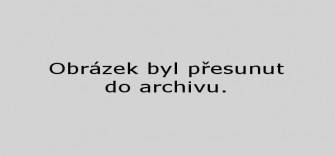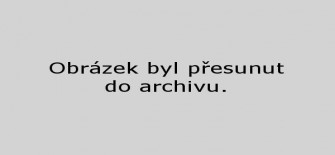
This year we celebrate 190 years from the birth of Gregor Johann Mendel, an Augustinian friar, who, thanks to his diligence, meticulousness and genius, laid down the principles of genetics which are still valid to this day. This year the original manuscript of his most influential work "Experiments on Plant Hybridization" returned to Brno. But before we start to explain the journey of the manuscript, we should say something about the man G. J. Mendel himself.
He was born on 29th of July in Hynčice in Silesia as Johann Mendel. His parents Anton and Rozina were peasants working in the fields in the vicinity of Hynčice. Mendel had 2 sisters and he appeared to be interested in nature and sciences from his very childhood. Thanks to his talent and determination to study he attended the PIarist College after elementary school in Lipník, then grammar school in Olomouc and then attended the Faculty of Arts in Olomouc. He had some hard times regarding earning his living during his studies as his parents could not support him due to bad harvests and his father´s injury.
 Extracts from Mendel´s manuscript
Extracts from Mendel´s manuscript
When he was 21 years old, he was recommended to enter the monastery of Augustinians. The deeply devout young man did not hesitate much and soon became an Augustinian friar. He had the opportunity to studying theology as well as agriculture and fruit harvesting. Despite failing an exam of his teaching abilities in Vienna he started to study there as well. Not even his second try was successful and Mendel returned to Brno and worked there as substitute professor. Shortly after his arrival from Vienna he started his research using and examining peas. He spent 9 long years growing peas and observing certain features. During this period he managed to deduce common features and principles now known as Mendel´s Laws of Inheritance. He had both lectured and published his work, but the discovery and evaluation of the discovery took place much later, after Mendel´s death. During his life, Mendel occupied various important posts – he was an abbot, he was a director of Moravian Mortgage Bank and a member of many organizations and societies. His scholarly activities concentrated not only on the cultivation of peas, but he was interested in meteorology, astronomy and he bred bees. He died on 6th January, 1884.
 Mendel´s birthplace in Hynčice
Mendel´s birthplace in Hynčice
Let us now return to his manuscript and the celebrations of Mendel´s anniversary. The manuscript of the work "Experiments on Plant Hybridization "was written before the year 1866, even before he published any articles about it. The history of the manuscript is an unhappy one and could well make a whole story in itself. After 1953 when all religious orders were abolished, the manuscript was in the possession of the Czech Augustinians. In the late 80s' it was lent abroad, where the Mendel family set up a claim on it. Thanks to the initiative of the Ministry of Foreign Affairs led by the Minister Karel Schwarzenberg, the demand to return the manuscript to its place of origin were met and the manuscript was returned to Brno Abbey thus finally reaching the mother country once more.
 Mendel´s school report from fruit harvesting
Mendel´s school report from fruit harvesting
The celebration of Mendel´s anniversary is being organized by the Mendel Museum of Masaryk University and St. Thomas´s Abbey with the great support of nearly 300 institutions and organizations both in the Czech Republic and abroad. The highlights of the celebrations are Anniversary Mendel Lectures led by 4 Nobel Prize winners who will be talking about their scientific goals as well as their relationship to Mendel. Apart from that, there are many exhibitions, lectures and conferences. To find out more about the programme of events visit www.mendel190.cz. This year we have a unique opportunity to pay tribute to the genius of a person, who thanks to his unflagging work founded a field of science, which still influences us on an everyday basis. Hopefully it will be a fitting opportunity to pay tribute to Mendel in the same way the world has done for decades.
 G. J. Mendel in the up-to-date picture
G. J. Mendel in the up-to-date picture
Ondřej Dostál, Mendel Museum of Masaryk University